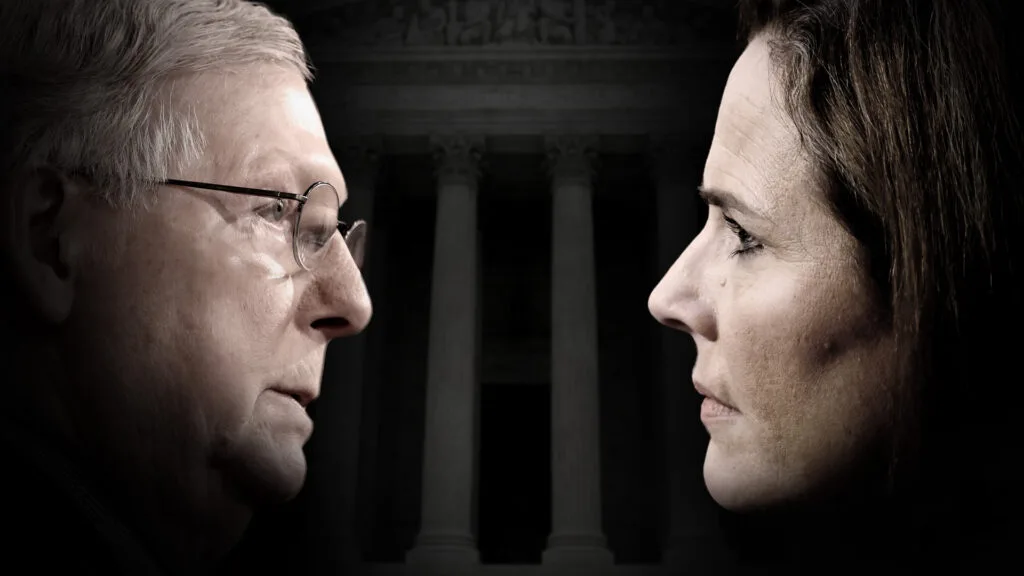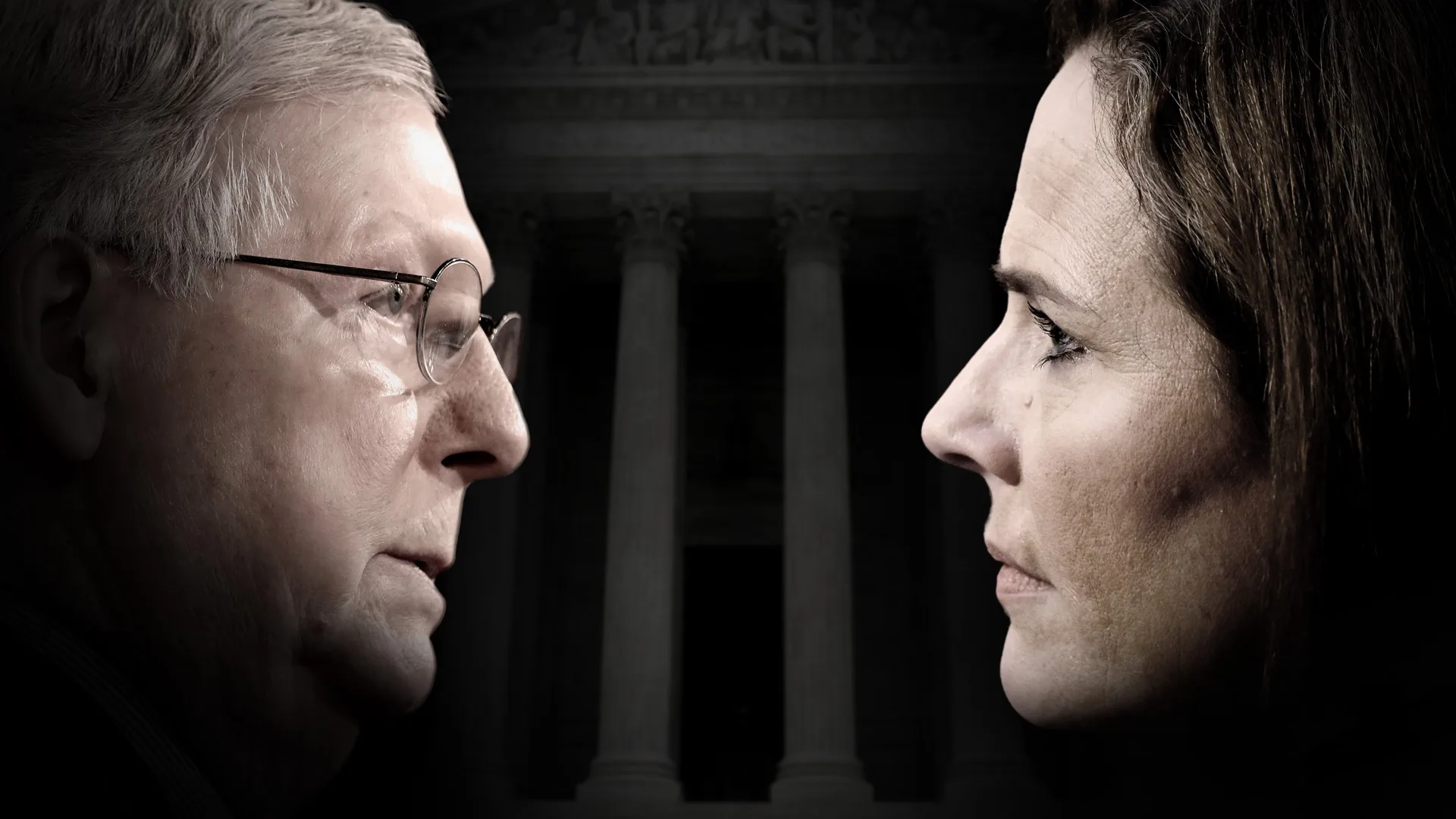Inside the First “All-Out War” Over a Supreme Court Nominee
May 20, 2019
Share
Last week, Alabama enacted a law that essentially banned abortion. Lawmakers have stated that, in part, it was designed to prompt a challenge to Roe v. Wade.
In the aftermath, all eyes have been on the U.S. Supreme Court.
There has been a crush of anti-abortion legislation since Justice Brett Kavanaugh’s confirmation last fall tilted the court toward a conservative majority. Opponents of abortion now have what they believe is the best chance in a generation to overturn the landmark ruling. And they have Senate Majority Leader Mitch McConnell (R-Ky.) to thank for it.
On Tuesday, the FRONTLINE documentary Supreme Revenge investigates the decades of consequential political brinkmanship that shaped the court’s current makeup. The film finds that for McConnell, Kavanaugh’s high-stakes confirmation to the swing seat vacated by Justice Anthony Kennedy was a crowning achievement. It was the culmination of a promise to retaliate for what the senator saw as unfair treatment of President Ronald Reagan’s Supreme Court nominee Robert Bork in the late 1980s.
The above excerpt from Supreme Revenge goes inside Bork’s failed nomination, which sparked the conservative desire for revenge that would ultimately help shape the court for decades to come.
In a heated effort to prevent Bork’s confirmation, liberal Democrats launched protests, phone banks and attack ads. In the Senate, Ted Kennedy (D-Mass.) led the charge. “‘Just know that we’ll have to destroy him,'” former Sen. Alan Simpson (R-Wyo.) tells FRONTLINE he recalls Kennedy saying.
Democrats said they were spurred to action by Bork’s record on civil rights and social issues. “Everything that Bork had written and stood for meant that the civil rights and affirmative action push of… the civil rights movement was in danger,” Ethan Bronner, author of “Battle for Justice,” tells FRONTLINE.
But to McConnell — then a first-term senator — and other Republicans, the anti-Bork effort was an unfair attack based on the judge’s conservative ideology.
“It was the first moment that you saw all-out war over a Supreme Court nominee,” Republican pollster Frank Luntz tells FRONTLINE. “It really was the first example of the politics of destruction of the modern era.”
As the film goes on to detail, McConnell vowed that he and his Republican colleagues would fight back. And they did: “The forces for Bork who suffered that very painful defeat didn’t give up, didn’t go home to sulk,” Linda Greenhouse of The New York Times tells FRONTLINE in the documentary. “They went underground and built an infrastructure to create a new reality, a new reality for our judicial politics…”
For the full story on how that new reality came to be, watch Supreme Revenge. From FRONTLINE filmmaker Michael Kirk and his team, the documentary draws on dozens of interviews with key current and former U.S. senators — including Sen. Susan Collins (R-Maine), Sen. Lindsey Graham (R-S.C.), Sen. Amy Klobuchar (D-Minn.) and Heidi Heitkamp (D-N.D.) — White House and congressional staffers, insiders from multiple presidential administrations, legal experts, authors and journalists. Thirty-nine extended interviews from the making of Supreme Revenge will go live on FRONTLINE’s website in tandem with the documentary’s premiere, offering firsthand insights from three decades of Supreme Court confirmation battles that led to the Kavanaugh vote.
As conversation about the future of Roe v. Wade swirls, the film and these interviews are a must-watch look at how McConnell and his allies have come to dominate the court.
Supreme Revenge premieres Tuesday, May 21, 2019 on PBS, PBS.org/frontline, and the PBS Video App (check local listings). The newest installment of the FRONTLINE Transparency Project, featuring 39 extended interviews from the making of Supreme Revenge, will launch that same evening.

Related Documentaries
Latest Documentaries
Related Stories
Related Stories
Explore
Policies
Teacher Center
Funding for FRONTLINE is provided through the support of PBS viewers and by the Corporation for Public Broadcasting, with major support from Ford Foundation. Additional funding is provided the Abrams Foundation, Park Foundation, John D. and Catherine T. MacArthur Foundation, Heising-Simons Foundation, and the FRONTLINE Trust, with major support from Jon and Jo Ann Hagler on behalf of the Jon L. Hagler Foundation, and additional support from Koo and Patricia Yuen. FRONTLINE is a registered trademark of WGBH Educational Foundation. Web Site Copyright ©1995-2025 WGBH Educational Foundation. PBS is a 501(c)(3) not-for-profit organization.





















